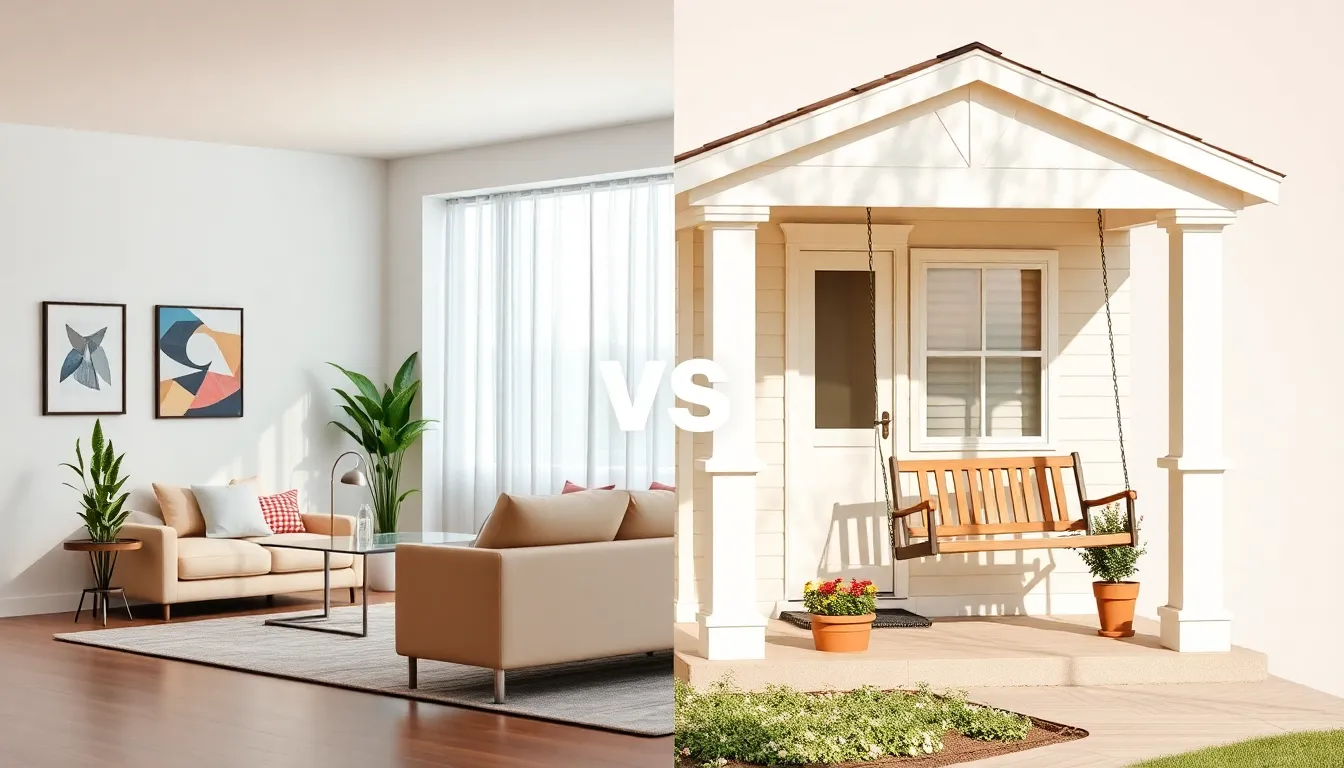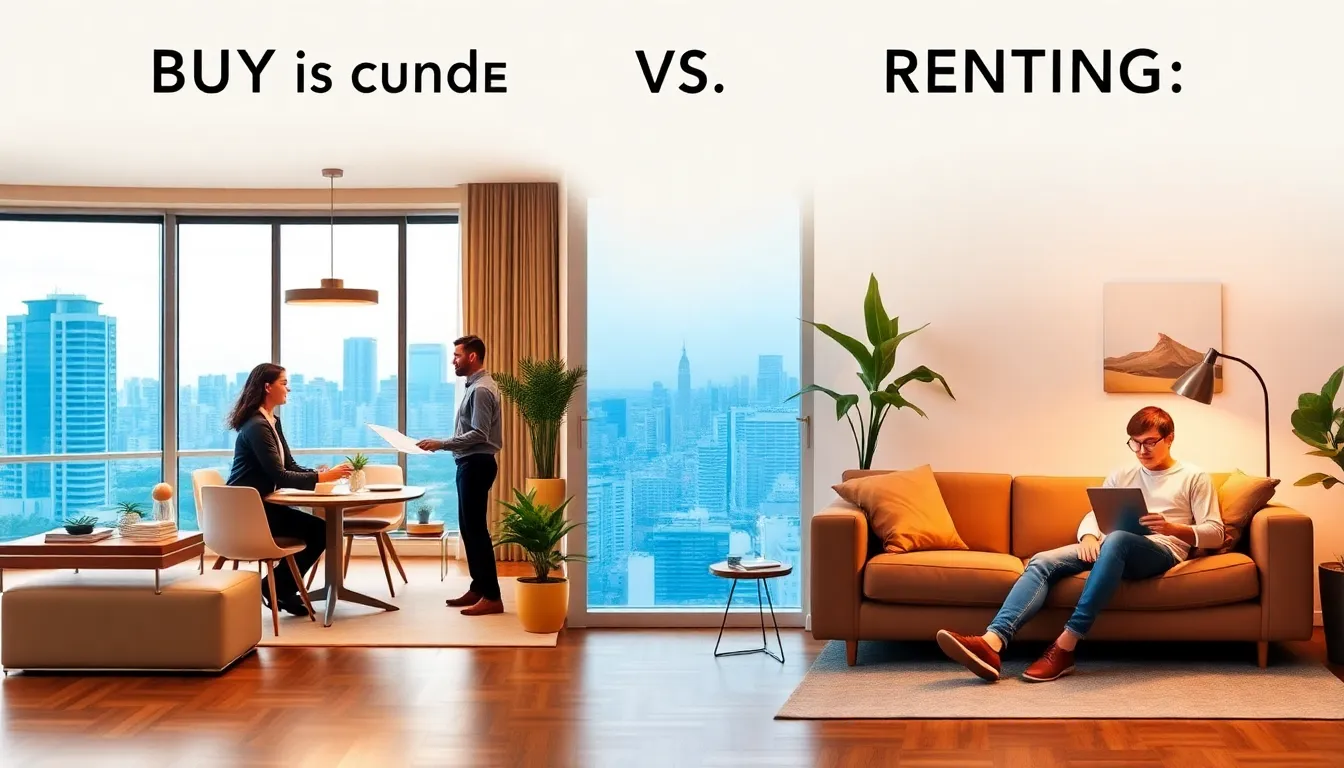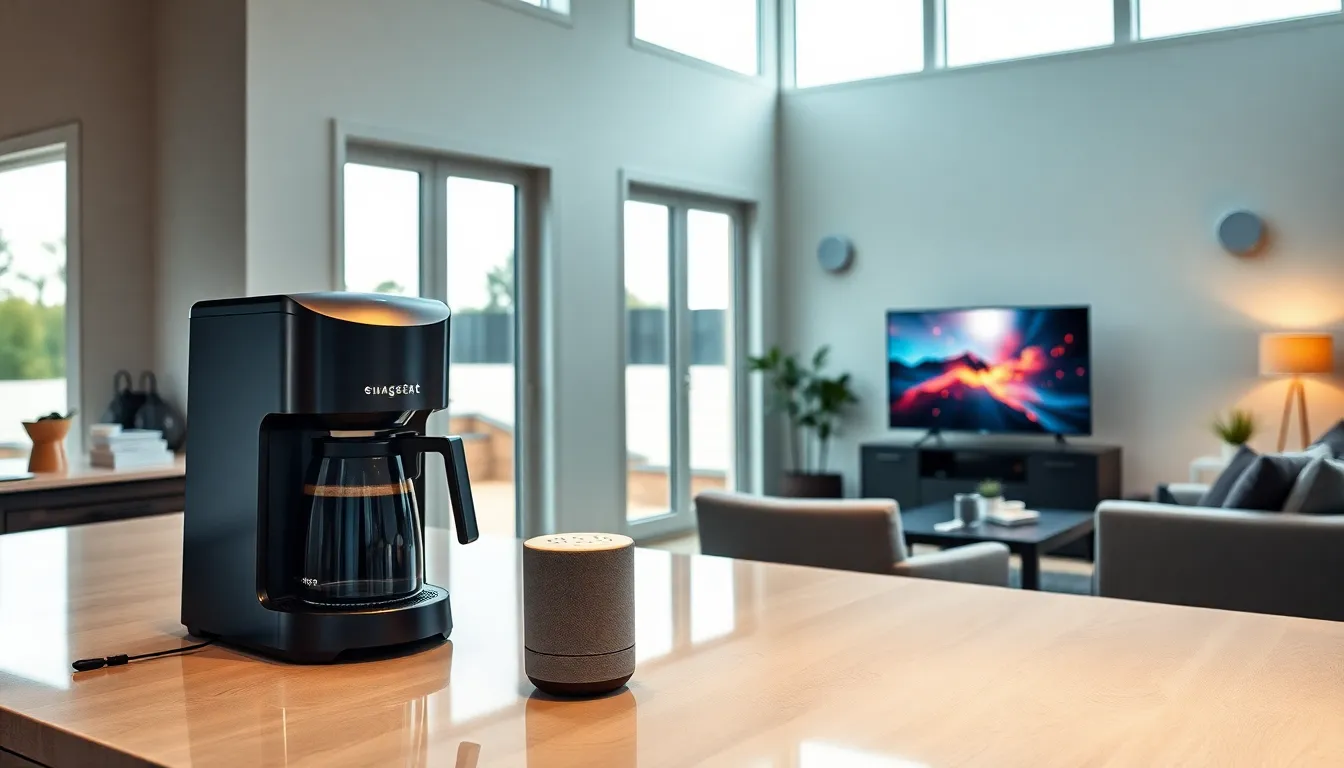Thinking about where to live? You’re not alone. Many face the age-old dilemma of renting an apartment versus buying a house. Each option has its own set of quirks and perks that can make the decision feel like choosing between pizza or tacos, delicious but confusing. This guide will jump into the nitty-gritty of both choices, helping you decide which path suits you best. So grab a snack, and let’s explore the pros, cons, and everything in between.
Table of Contents
ToggleUnderstanding the Basics

The first step is grasping the essentials: renting and buying represent two distinct lifestyles. Renting an apartment typically involves committing to a lease, often for a year. It means flexibility and lesser responsibility. Owning a house, but, is like adopting a furry friend, it’s a long-term commitment. Homeownership involves not just the mortgage, but upkeep, property taxes, and other expenses that can surprise even the savviest buyers.
Pros and Cons of Renting
Pros of Renting
- Flexibility: Renting allows for easy relocation. Job change? Moving for love? No problem.
- Lower Initial Costs: Generally, security deposits and first months’ rent are cheaper than a down payment on a house.
- Maintenance-Free Living: Most landlords handle major repairs, saving you time and stress.
Cons of Renting
- No Equity Building: Rent money is usually just a ticket to someone else’s investment.
- Limited Customization: Want to paint walls or adopt a pet? That could be a deal-breaker with a landlord.
- Rent Increases: Renting doesn’t protect you from rising rents. Just like that sushi restaurant that suddenly went upscale.
Pros and Cons of Buying
Pros of Buying
- Building Equity: Every mortgage payment is a step closer to ownership, and home values typically rise over time.
- Customization: Homeownership is like having a blank canvas: you can paint, renovate, and personalize to your heart’s content.
- Tax Benefits: Certain expenses related to homeownership might be tax-deductible, which is always a financial bonus.
Cons of Buying
- High Upfront Costs: A hefty down payment and closing costs can prompt some buyers to sweat a little.
- Responsibility: Home maintenance is entirely on you, and that leaky roof isn’t going to fix itself.
- Market Fluctuations: Housing markets can sway, and selling in a downturn may leave you underwater.
Financial Considerations
The financial aspect of renting versus buying is one of the most nuanced. Renting usually involves lower costs upfront with a predictable monthly rent. It’s often a more manageable financial choice, especially for those beginning their careers or who aren’t ready for a mortgage.
Buying a home, but, shifts the responsibility into a more significant financial commitment that, if managed well, can lead to wealth accumulation. When calculating costs, potential buyers must also consider property taxes, insurance, maintenance, and the impact of interest rates on their mortgage.
Experts recommend putting together a budget that weighs current rent costs against potential mortgage payments, factoring in additional expenses to get the total picture.
Long-Term Implications
Each choice has far-reaching implications on a person’s future. Renting may offer more mobility, allowing one to adapt to job changes or life phases with ease. But, it also means potentially being at the mercy of market rents.
On the other hand, buying a house could provide a sense of stability and a better long-term investment. But with that stability comes responsibility: the homeowner has to ensure the property is maintained and dealt with market fluctuations. Think of it as planting roots, if watered correctly, they can flourish beautifully.
Lifestyle Factors to Consider
Lifestyle plays a pivotal role in this decision. For some, the excitement of urban living, proximity to work, and access to nightlife favor renting an apartment. For others, the desire for more space, a garden, or a quiet neighborhood leans them towards buying a house.
Also, consider your life stage, families may need the space a house offers, while young professionals might appreciate the flexibility a rental provides. Don’t forget about commuting: where you choose to live can dramatically affect your work and social life.
Making the Right Choice for You
Eventually, the decision boils down to personal circumstances. Reflect on finances, lifestyle goals, and future plans. It might help to list pros and cons for each option or even consult financial advisors or real estate professionals.
It’s also worth considering rental market trends in your area. Some cities have become incredibly tenant-friendly, while others have properties flying off the market at record speeds. Your local housing market dynamics can significantly influence your decision.






